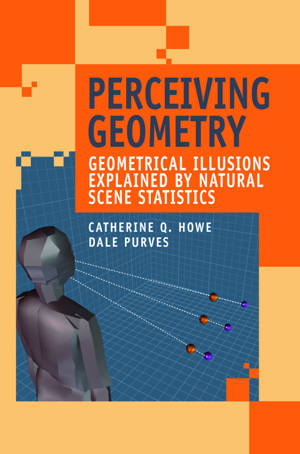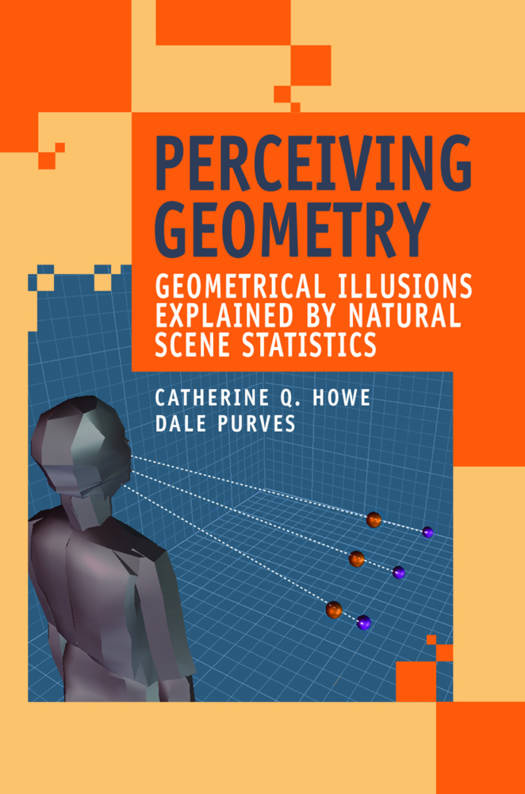
- Retrait gratuit dans votre magasin Club
- 7.000.000 titres dans notre catalogue
- Payer en toute sécurité
- Toujours un magasin près de chez vous
- Retrait gratuit dans votre magasin Club
- 7.000.000 titres dans notre catalogue
- Payer en toute sécurité
- Toujours un magasin près de chez vous
Perceiving Geometry
Geometrical Illusions Explained by Natural Scene Statistics
Catherine Q Howe, Dale Purves
Livre broché | Anglais
125,95 €
+ 251 points
Format
Description
Understanding vision - whether from a neurobiological, psychological or philosophical perspective - represents a daunting challenge that has been pursued for millennia. Here, the authors consider the evidence that, with respect to the perception of geometry, the human visual system solves problems by incorporating past human experience of what retinal images have typically corresponded to in the real world. This empirical strategy, documented by extensive analyses of scene geometry, explains many otherwise puzzling aspects of what we see.
Spécifications
Parties prenantes
- Auteur(s) :
- Editeur:
Contenu
- Nombre de pages :
- 126
- Langue:
- Anglais
Caractéristiques
- EAN:
- 9781441938008
- Date de parution :
- 08-12-10
- Format:
- Livre broché
- Format numérique:
- Trade paperback (VS)
- Dimensions :
- 155 mm x 235 mm
- Poids :
- 208 g







